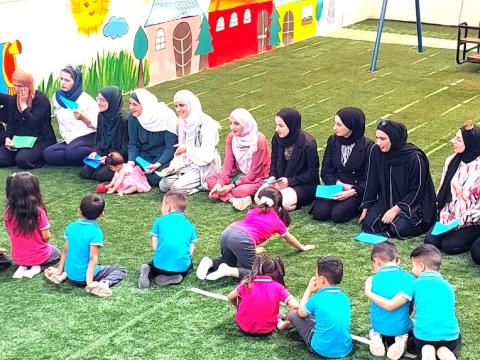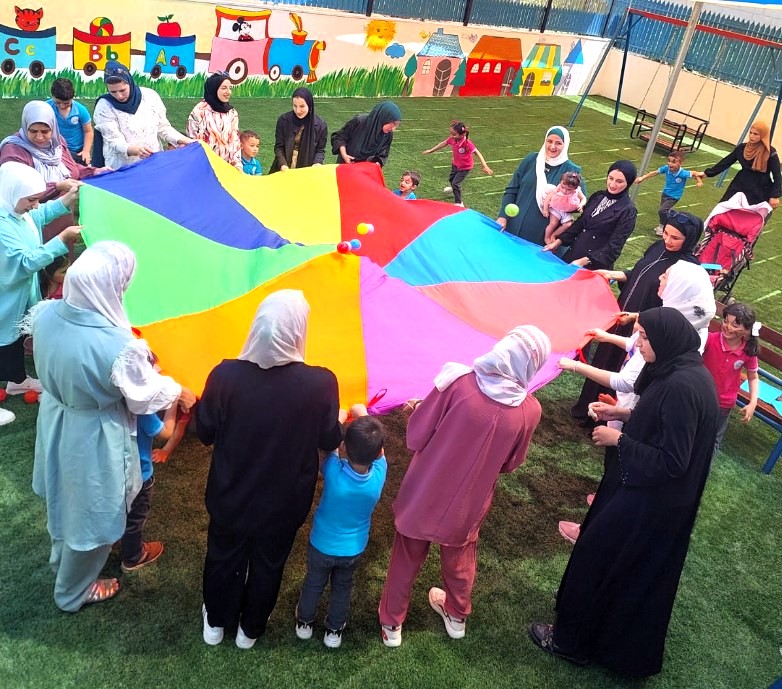It Is Never Too Late for Positive Parenting

Munira, 43, lives in a small village in the Hebron governorate with several of her children and grandchildren. “I have spent my whole life in this village - married, had children, and raised them the same way my parents raised me, just as they were raised by their own parents,” she reflects. Now a grandmother, Munira had never questioned her approach to parenting, even though it placed many responsibilities on her while giving her children little space to help with chores or make decisions that affected them.
In most families across the West Bank, like Munira’s, gender norms often dictate that women bear full responsibility for children’s education and discipline. Traditionally, physical discipline is widely tolerated, leading to a high prevalence of corporal punishment.
One day, a neighbor told Munira about a positive parenting training course held in the village. Munira’s initial reaction was to laugh at the idea. “I raised my children like our grandparents did. They turned out fine. What could there be to learn?” she remembers thinking. But her friend’s persistence eventually convinced her to attend, just to see what it was all about.
From the first session, Munira was surprised by how eye-opening the training was. She realised there were skills and approaches to parenting that she wished she’d known sooner. She soon began applying her newfound knowledge to her interactions with her grandchildren. “My mom became more patient with my children,” says her daughter, Afnan. “She used to get upset whenever they made a mess at home. After the training, she encouraged them to explore and play.” This new openness also made it possible to discuss education and parenting more freely, as her children began to share their thoughts and advice with her.

Munira also learned to express her feelings openly and to show affection. “My mom is now comfortable hugging me,” says Mila, Munira’s youngest daughter. “I even framed a picture of her giving me a hug as a gift.” Inspired by her neighbor’s advice, Munira began to question old habits, embracing change to become an even more supportive mother and grandmother.
This training is part of the “Enhanced Access to MHPSS Services for Vulnerable Communities in Areas C and B in the West Bank” project. This project, implemented by World Vision in partnership with Juzoor for Health & Social Development, is funded by the German Federal Ministry for Economic Cooperation and Development (BMZ), with a budget of one million euros. Beyond the support on positive parenting, the project aims to provide Mental Health and Psychosocial Support (MHPSS) to approximately 25,000 children in 34 communities located in Hebron, the Jordan Valley, Nablus and Tubas. The project will also focus on the rehabilitation of playgrounds in 12 villages to improve their safety and make them more environmentally friendly.